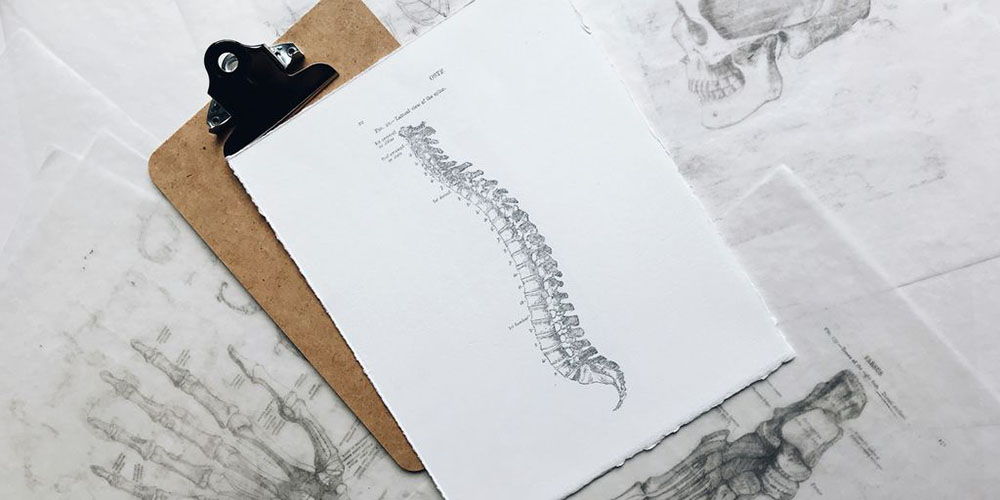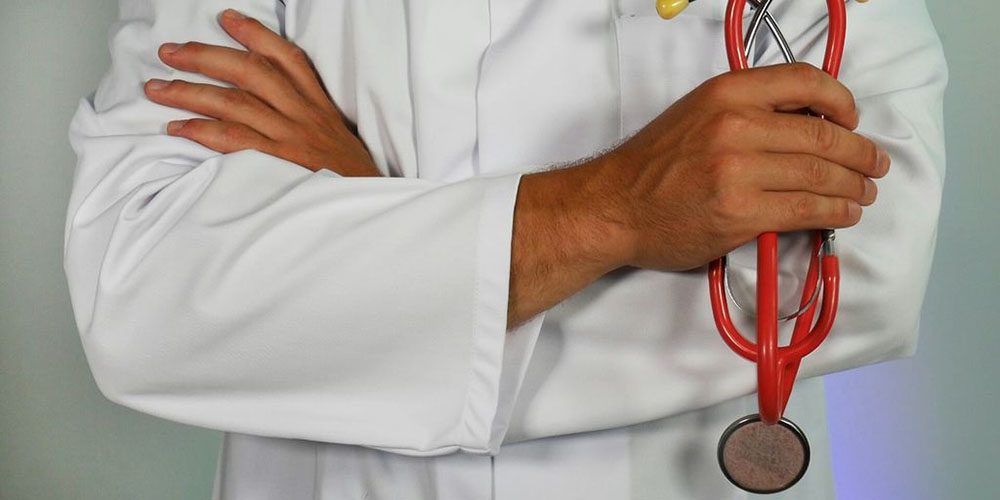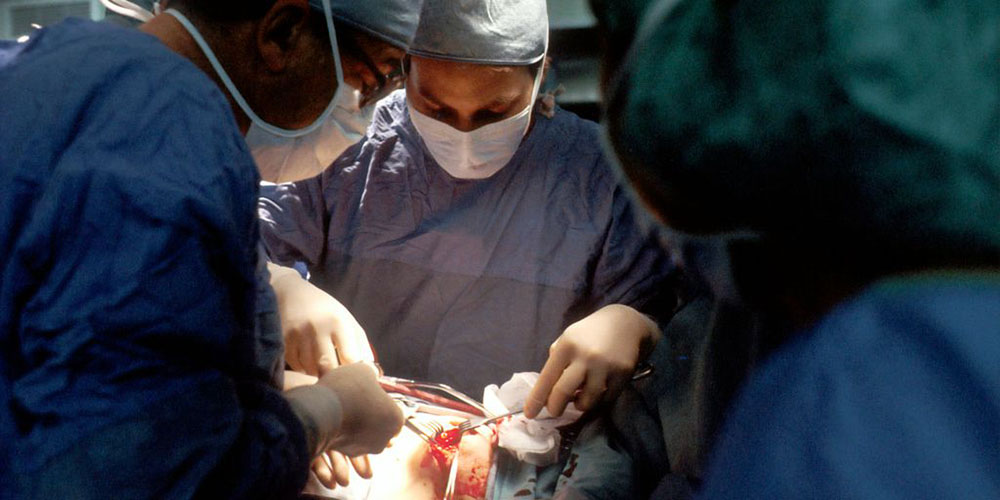Common Conditions Treated by Spine Surgeons
Spine surgeons treat a variety of conditions that can affect the spine, leading to pain and discomfort. Understanding these common issues can help individuals recognize symptoms and seek appropriate care. This article discusses several conditions treated by spine surgeons, providing insight into their causes, symptoms, and treatment options.

Herniated Discs: Causes, Symptoms, and Treatments
Understanding Herniated Discs
A herniated disc occurs when the soft inner part of a spinal disc pushes through its tough outer layer. This can happen due to aging or sudden injuries. When this happens, it can press on nearby nerves, causing pain and discomfort.
Common Symptoms of Herniated Discs
People with herniated discs often feel pain, numbness, or weakness in their back or legs. These symptoms can make daily activities difficult. Seeing an orthopedic surgeon can help in diagnosing and treating these issues effectively, ensuring that patients receive the right care.
Treatment Options for Herniated Discs
Treatment usually starts with non-surgical methods like physical therapy and medication. However, if these do not work, surgery may be necessary to relieve pressure on the nerves. Surgeons On A Lien can connect personal injury attorneys with spine surgeons, ensuring that victims of accidents receive the medical attention they need without upfront costs. This collaboration is vital for effective recovery and legal support.
Spinal Stenosis: Diagnosis and Management

What is Spinal Stenosis?
Spinal stenosis is a condition where the spinal canal narrows, putting pressure on the spinal cord and nerves. This narrowing can happen due to aging, injuries, or conditions like arthritis. Spine surgeons on a lien can help diagnose this condition effectively.
Symptoms of Spinal Stenosis
People with spinal stenosis may experience pain, numbness, or weakness in their legs or arms. They might also feel tingling sensations or have difficulty walking. These symptoms can vary in intensity and may worsen over time.
Treatment Approaches for Spinal Stenosis
Treatment for spinal stenosis often starts with non-surgical options like physical therapy and pain management. However, if these methods do not relieve symptoms, surgery may be necessary. Surgeons can perform procedures to relieve pressure on the spinal cord. In personal injury cases, spinal tumors or spinal infections may also be involved, and having a reliable medical team is crucial. Surgeons On A Lien can connect personal injury attorneys with specialists who understand these complex cases, ensuring that patients receive the best care possible.
Scoliosis: Identifying and Treating Spinal Curvature
Causes of Scoliosis
Scoliosis is a condition where the spine curves sideways. It can happen for various reasons, including congenital disorders that are present at birth or due to growth during childhood. Sometimes, the cause is unknown, but it can also develop from conditions like Kyphosis or even from injuries.
Symptoms and Diagnosis of Scoliosis
People with scoliosis may notice uneven shoulders or hips. They might also experience back pain or discomfort. Doctors usually perform physical exams and may use X-rays to see how severe the curve is. Early detection is important for effective treatment.
Surgical and Non-Surgical Treatments for Scoliosis
Treatment options vary based on the severity of the curve. For mild cases, doctors may recommend monitoring or physical therapy. However, for more severe cases, surgery might be necessary to correct the curve. Spine surgeons often perform procedures like spinal fusion to stabilize the spine. In personal injury cases, Surgeons On A Lien can connect patients with experienced spine surgeons who understand the complexities of spinal deformities, ensuring that victims receive the best care possible. This collaboration is crucial for effective recovery and legal support in personal injury claims.
Degenerative Disc Disease: An Overview
What is Degenerative Disc Disease?
Degenerative disc disease refers to the breakdown of spinal discs that act as cushions between the vertebrae. This condition often occurs as people age, leading to dehydration of the discs and a decrease in their height. As the discs deteriorate, they can cause pain and discomfort, often linked to osteoarthritis in the spine.
Symptoms of Degenerative Disc Disease
Individuals suffering from degenerative disc disease may experience chronic back pain, stiffness, and reduced mobility. The pain can worsen with certain activities, making daily tasks challenging. In some cases, the condition can also lead to nerve compression, resulting in pain that radiates to the legs or arms.
Treatment Options for Degenerative Disc Disease
While many patients find relief through conservative treatments like physical therapy and pain management, surgery may be necessary if these methods fail. Surgical options include disc replacement or spinal fusion, depending on the severity of the damage. Surgeons On A Lien can assist in connecting spine surgeons with personal injury attorneys, ensuring that victims receive the necessary care for injuries exacerbated by accidents. This collaboration is crucial, as pre-existing conditions can complicate personal injury claims, requiring medical evidence to establish a link between the accident and the worsening of the condition.
Spondylolisthesis: Understanding Spinal Slippage
Causes and Types of Spondylolisthesis

Spondylolisthesis occurs when one vertebra slips forward over another. This condition can arise from various factors, including degenerative changes in the spine, congenital defects, or injuries. Over time, the spine may weaken, leading to instability. In some cases, a childhood injury can also contribute to this condition.
Symptoms of Spondylolisthesis
Individuals with spondylolisthesis may experience back pain, stiffness, and even pain radiating down the legs. Symptoms can vary based on the severity of the slippage. Some may also notice changes in posture, such as an exaggerated curve in the lower back, known as lordosis. If left untreated, these symptoms can worsen, impacting daily activities.
Treatment and Management of Spondylolisthesis
Treatment options for spondylolisthesis often begin with conservative methods, such as physical therapy and pain management. However, if these approaches fail, surgery may be necessary to stabilize the spine. Surgeons On A Lien can assist in connecting personal injury attorneys with qualified spine surgeons. This collaboration ensures that patients receive the necessary care without upfront costs, allowing them to focus on recovery while navigating their personal injury case. Working with surgeons on a lien can ease financial burdens for patients, making timely treatment more accessible.
Spinal Fractures: Causes, Symptoms, and Treatments
Common Causes of Spinal Fractures
Spinal fractures often occur due to accidents or falls. These injuries can happen in various situations, such as car accidents, sports injuries, or even from slip and falls. In some cases, conditions like osteoporosis can weaken bones, making them more susceptible to fractures. Understanding the causes of spinal trauma and fractures is essential for prevention and treatment.
Symptoms of Spinal Fractures
Individuals with spinal fractures may experience severe pain in the back or neck. Other symptoms can include numbness, weakness, or tingling in the arms or legs. If the spinal cord is affected, it may lead to more serious complications, such as loss of bladder or bowel control. Recognizing these symptoms early can lead to better outcomes.
Treatment Options for Spinal Fractures
Treatment for spinal fractures varies based on the severity of the injury. In many cases, rest and physical therapy are recommended. However, surgery may be necessary for more severe fractures to stabilize the spine. Surgeons On A Lien can assist in connecting personal injury attorneys with experienced spine surgeons. This collaboration ensures that victims receive the necessary medical care while also addressing legal aspects of their cases. Neurosurgeons play a crucial role in personal injury cases by diagnosing and treating neurological injuries, which can be vital for recovery.
Spinal Cord Injuries: Immediate and Long-Term Care
Types of Spinal Cord Injuries
Spinal cord injuries can vary widely, affecting different parts of the body. These injuries often result from accidents, falls, or other traumatic events. Understanding the type of injury is crucial for effective treatment.
Immediate Care for Spinal Cord Injuries
Immediate care is vital for spinal cord injuries. Quick medical attention can help prevent further damage. Surgeons on a lien can assist in connecting personal injury victims with specialized spine surgeons who understand the urgency of these cases. They ensure that patients receive the necessary care without upfront costs, allowing for timely interventions.
Long-Term Management of Spinal Cord Injuries
Long-term care for spinal cord injuries often involves rehabilitation and ongoing medical support. Personal injury spine surgeons play a key role in developing comprehensive care plans. They work closely with personal injury attorneys to ensure that victims receive the best possible outcomes. This collaboration is essential for securing fair compensation and improving the quality of life for those affected by spinal cord injuries.
If you or someone you know has suffered a spinal cord injury, it’s crucial to understand both immediate and long-term care options. Our website offers valuable resources and connections to top doctors who specialize in recovery. Don’t wait—visit us today to find the help you need!
Conclusion
Spine conditions can significantly impact a person’s quality of life, causing pain, discomfort, and limited mobility. While non-surgical treatments are often the first line of approach, surgery may be necessary in cases of severe symptoms or when other interventions fail. If you or a loved one has suffered a spine injury due to an accident, Surgeons On A Lien can help. With our extensive database of board-certified spine surgeons, we are dedicated to connecting attorneys with qualified medical professionals who can provide expert care and improve the recovery process. Contact us today to find a spine surgeon who can make a difference in your case.
Frequently Asked Questions
What causes a herniated disc?
A herniated disc happens when the soft part inside a spinal disc pushes out through a tear in the outer layer. This often occurs due to aging, lifting heavy items incorrectly, or injury.
How do I know if I have spinal stenosis?
You might have spinal stenosis if you feel pain, numbness, or weakness in your back or legs, especially when walking or standing for a long time.
What are the signs of scoliosis?
Signs of scoliosis include uneven shoulders, a curved spine, and one hip being higher than the other. Sometimes, it can cause back pain.
Is surgery always needed for degenerative disc disease?
No, surgery isn’t always necessary. Many people find relief through physical therapy, medications, or lifestyle changes.
What is spondylolisthesis?
Spondylolisthesis is when one of the bones in your spine slips out of place. It can cause pain and discomfort, especially in the lower back.
How can I prevent spinal fractures?
To help prevent spinal fractures, maintain a healthy diet rich in calcium and vitamin D, exercise regularly, and avoid smoking.